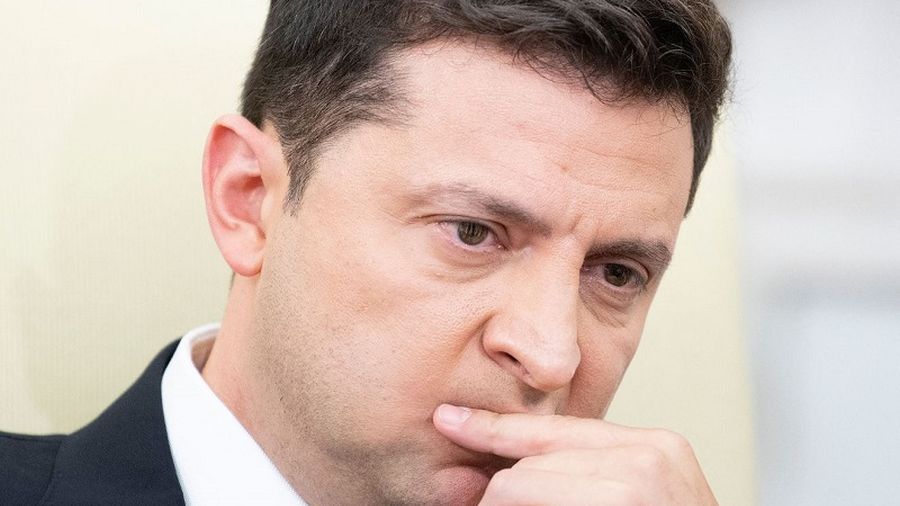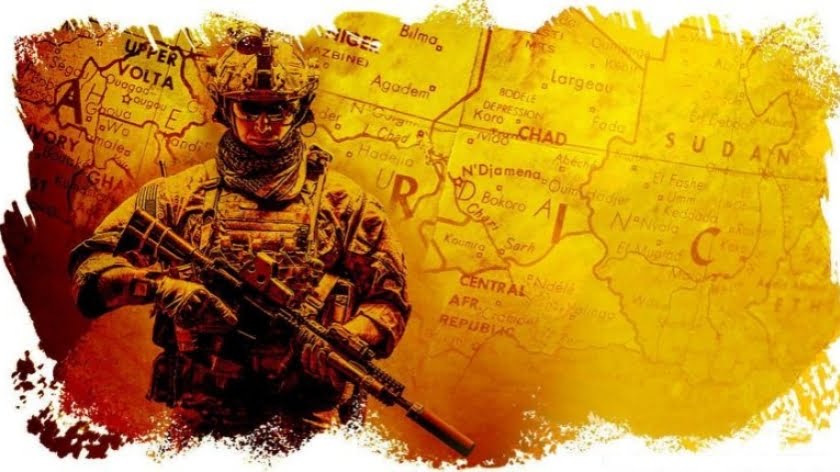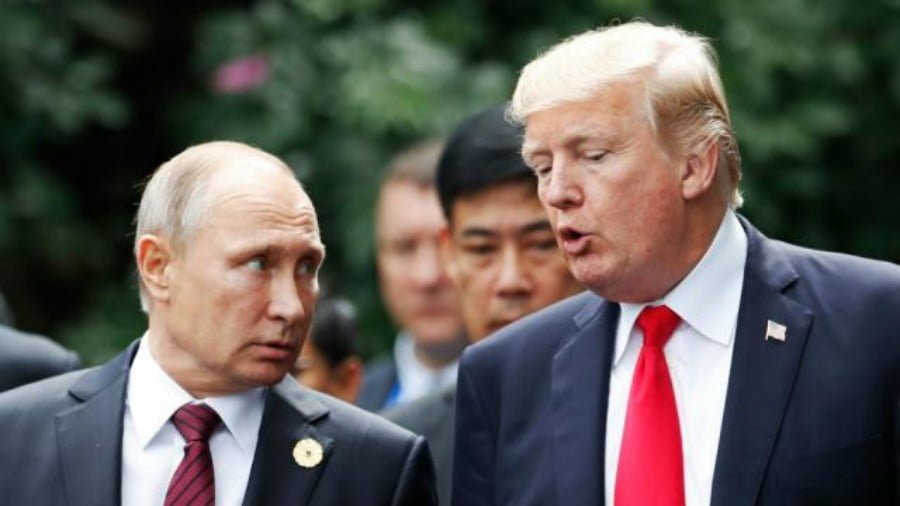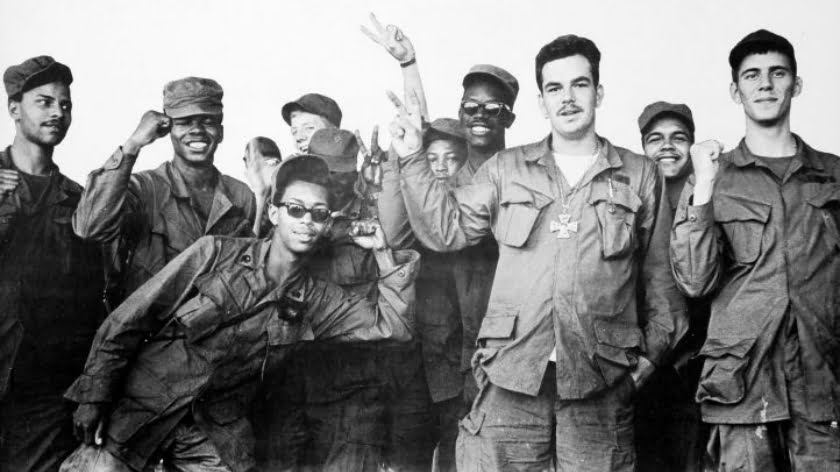Here’s How Russia’s Special Operation in Ukraine Can Succeed Without Regime Change
The socio-political and military objectives that Russia is aiming to achieve can be fulfilled through diplomatic means so long as Ukrainian President Zelensky has the will.
Russia’s special military operation in Ukraine aims to pursue several objectives: stopping Kiev’s genocide of the indigenous Russian people of Donbass; denazifying and demilitarizing the country; ensuring its neutrality; and ideally encouraging it to protect minority rights as well as recognize Crimea’s reunification with Russia and the Donbass Republics’ independence. These ambitious tasks can all be accomplished without regime change, especially considering the fact that Russian Foreign Ministry spokeswoman Maria Zakharova recently confirmed that her country has no such intentions.
For as complex as everything seems, the situation is actually rather simple. The US took control of Ukraine’s permanent military, intelligence, and diplomatic bureaucracies (“deep state”) by proxy after allied fascist-nationalist forces completed their early 2014 “EuroMaidan” Color Revolution coup. This led the country down the dark path of being artificially transformed into the so-called “anti-Russia”, which refers to the concept of weaponizing the entire state against its fraternal neighbor and justifying these warmongering aims through the fascist ideology that was subsequently imposed on its society.
Russia sought to diplomatically resolve the undeclared US-provoked missile crisis in Europe by sharing its security guarantee requests with the US and NATO, but to no avail. They didn’t sincerely negotiate with Moscow in good faith, nor did they take its legitimate concerns seriously. Russian intelligence’s tip-off about Kiev’s US-backed preplanned initiation of a third civil war escalation in Donbass, that country’s weapons of mass destruction programs (WMD), and the US’ accelerated neutralization of Russia’s nuclear second-strike capabilities prompted President Putin to decisively act when he did.
The Russian Armed Forces (RAF) are taking the utmost care to wage a clean war that limits civilian casualties and collateral damage in full alignment with their Commander-in-Chief’s views about the historical unity of Russians and Ukrainians that he elaborated on in his detailed article from summer 2021. This explains Russia’s officially reported casualty figures from last week as well as the fact that the Eurasian Great Power hasn’t irresponsibly flexed its military might to utterly destroy Ukrainian cities exactly like the US destroyed Yugoslav, Afghan, Iraqi, Libyan, Syrian, and other ones over the years.
The socio-political and military objectives that Russia is aiming to achieve can be fulfilled through diplomatic means so long as Ukrainian President Zelensky has the will. He’s already flirting with non-NATO security guarantees even though his government’s proposal might not be all that it seems at this stage. Nevertheless, its very suggestion alongside three rounds of talks in Minsk as well as Thursday’s Foreign Ministers’ meeting in Turkey’s Antalya hints that the political track might yet yield some progress even though that certainly can’t be assured, but it’s still worth pursuing further.
The challenge, however, is that Russian National Defense Control Center head Colonel General Mikhail Mizintsev revealed on Tuesday that “All main decisions (in the country right now) are effectively being made by nationalists and their accomplices”, which means that Zelensky has pretty much been sidelined after losing control of the military dynamics in his own country. That outcome isn’t surprising though, especially considering his reliance on foreign mercenaries, but it still shows that the country’s official leader might be presently incapable of compromising with Russia even if he really wanted to.
Theoretically, all that Zelensky would have to do is announce that he’s initiating the domestic legal procedures to remove Ukraine’s NATO membership goal from his country’s constitution along with reforming the law to restore minority rights in Lenin’s unnatural mini-empire so as to avert its potential collapse on an identity basis. His disputes with the US over the past month over his patron’s warmongering ahead of Russia’s special operation and refusal to risk World War III by dispatching fighter jets to his country (not to mention imposing a “no-fly zone”) are well known.
This indicates that he might possibly consider compromising with Russia after finally realizing that his side’s cause is hopeless and that his country was essentially exploited as bait to tempt America’s regional rival into commencing its special operation that Washington expected to take advantage of. It’s the Ukrainian people that are paying the price, all because Zelensky couldn’t liberate himself from his patron’s fascist proxies that surround him and infest the Ukrainian “deep state”. They’re the ones who are responsible for collaborating with NATO, researching WMDs, and threatening Russia’s red lines.
Without military backing, though, the Ukrainian leader really can’t do all that much. He might even risk being assassinated by his “fellow” officials, who could then simply accuse Russia of “regicide” as yet another one of their many false flags against it thus far driven by the desperation to prompt a more direct US-led Western intervention in spite of it likely provoking World War III. The point, though, is that Zelensky turning against his US-controlled fascist military forces would de facto make him supportive of Russia’s demilitarization goal, which is already steadily being accomplished by destroying their assets.
The denazification of Ukraine can only begin in earnest upon the purging of his “deep state”, which is a lot easier said than done, but could still theoretically result in him remaining in office unless his “fellows” overthrow him on America’s command. Basically, the sequence of events required to scale down the kinetic phase of Russia’s special military operation in Ukraine and prompt its gradual transformation to the socio-political phase regarding denazification and ensuring minorities’ rights can begin right away should Zelensky have the political will and especially personal bravery to do so.
The elephant in the room is Russia’s request that Kiev recognize Crimea’s reunification and the Donbass Republics’ independence, which probably won’t ever realistically happen under the incumbent administration, especially if it takes the dramatic move of turning against its US-backed fascist “deep state” officials. That might be an acceptable compromise for Russia in the meantime though since retaining the “frozen” nature of those disputes without Kiev having any credible US-backed military means to bolster its threats against them isn’t really all that bad of an outcome for now.
All in all, the prospects for a peaceful (but not necessarily immediate) solution to Russia’s legitimate concerns about its national security red lines in Ukraine come down to Zelensky, who can instantly initiate this sequence of events if he truly wants to. He might not be able to, though, since he’s thus far proven himself to be a puppet of his American patron and a de facto hostage of their fascist proxies in his “deep state” despite he himself being a very proud Jew. Only in the event that he finally independently asserts himself can everything wrap up a lot sooner than later.







